8 Tips To Consider Before Buying a Used Adventure Motorcycle
Make sure she's really your dream bike and not somebody else's problems.
4. Tuning, Adjustments and Maintenance
Sometimes the areas of consideration I mentioned before can be trumped by how well the motorcycle you are inspecting is tuned and adjusted. I have looked at used motorcycles that were dialed in as if they were new bikes. I’ve seen others that were so out of tune, with components so out of adjustment, that I wondered how the owners were able to ride them. This area can be a good sign of the discipline in the owner. How concerned they are that the bike runs and behaves properly can indicate the general way in which he/she maintained the bike. Additionally, it can give some insight into the longevity of the motorcycle. Poorly adjusted valves, injectors, and carburetors can cause an engine to run hot, thus putting additional wear on the engine. And this can potentially shorten a motorcycle’s lifespan.
It may also be prudent to examine the clutch adjustment, throttle bodies, brakes and rotors, and rocker arms. If not adjusted properly, these components can put unnecessary wear on the motorcycle and potentially cause you some hefty maintenance bills should the bike become yours.

Any aftermarket components and accessories should be evaluated, at least in terms of how professionally they were installed. This can indicate the discipline of the current owner in having a reliable, properly sorted motorcycle. Also, improperly installed components and electrical items can cause breakdowns, and even injury. So evaluate these items carefully. And ask questions.
A great way to detect the discipline of the current owner can be in the engine oil and other fluids. This can be a great place to start. Is the oil black? Does it have a thin consistency? If you’re answer is “Yes” to both of these questions, you may have an owner who is not disciplined in keeping scheduled maintenance. Also, look to see if the oil looks milky. If it is, then you may be dealing with a blown head gasket, which is a pricey fix.
5. The Front End
Forks on an adventure class or dual sport motorcycle can take a lot of abuse, not just in terms of terrain, but also climate. So you should try to evaluate the front forks as much as possible. First, make sure the rake of the front forks isn’t steeper than it should be. If they seem bent inward, then you may be seeing signs of front-end crash, or at least a front-end trauma.
The fork seals are another part of the front end that you will want to check. Age can certainly cause fork seals to blow but even newer bikes can blow seals when exposed to dust, gravel and mud. You can detect signs of blown fork seals by looking for oil on the forks tubes, rotors, and fork lowers. Sometimes a seller may try to clean up excess oil on the forks caused by blown seals. Look for what will appear to be sweating on the seals or push down on the front end while holding the front brake to see if any oil seeps out.
Since you are inspecting the front forks, you will want to be sure that the wheel bearings are in working condition. Bad wheel bearings can lead to quite a mess if they go undetected. Often, you can detect bad wheel bearings by yanking on each wheel. If you feel any give while doing this, then bad wheel bearings are probable.
6. Look For The Big Stuff
So far we have been looking at the smaller details of a motorcycle that can indicate what kind of life it has lived. But there are “big deal” details we have to look for as well; signs that the motorcycle has had a catastrophe of sorts. Sometimes this signs will scream out at you and be very easy to detect. But this is not always the case.
When inspecting your potential purchase, stand behind the motorcycle. Does the seat line up properly with the rear wheel? If it does not, then this may be a sign of subframe damage. This can be more common on Adventure Bikes that have spent more time in the dirt.
And this brings up another point I want to make. When inspecting the motorcycle, try to know as much as you can about the way in which the motorcycle was manufactured. For instance, some motorcycles do not have subframes. Therefore, they can be much more susceptible to frame damage in a fall. A good way to detect frame damage on a motorcycle is to evaluate whether the front and rear wheels are in-line with each other. If they are not, then this is a strong indicator that the motorcycle may have been involved in a relatively harsh crash. Evidence of frame and/or subframe damage can also be seen through either paint cracks on the frame itself, or stress cracks in the welds on the frame. So give this a good check, even if everything seems to line up properly.
Another issue that is worth mentioning here is the state of the fuel tank. Many fuel tanks have liners in them these days. But if you are purchasing a motorcycle with a metal fuel tank, you will want to inspect the inside of the tank. Internal fuel tank rust can seriously damage your fuel system, and it is an indicator of how the motorcycle was treated over its lifetime. This will be more common in older or “vintage” motorcycles. But it is good to check any motorcycle that has a metal tank. Replacing a tank and the fuel system to which it is attached can be cost prohibitive. So be alert!
7. Questions to Ask
In purchasing a used motorcycle, it is important to know what you don’t know. Be sure to prepare yourself before looking at the bike. Think of things that you do not know. And understand that there is no such thing as a stupid question. To help, here are some basic questions you will want to ask the current owner.
• What’s the ownership history?
• Who’s the primary rider of the bike?
• Why is the bike being sold?
• What’s the typical riding style of the owner… mileage on/off road?
• Any big falls or accidents?
• Any major repairs that have been done on the bike?
• Was the maintenance performed by a dealer and can records be provided?
• Is there anything wrong with the bike that hasn’t been pointed out yet?
8. How It All Adds Up
Imperfections in any of the preceding areas by themselves may not be reason enough to shy away from buying a motorcycle. Everything should be considered in a comprehensive manner. A thorough inspection of the bike will give you a clearer picture of what you are getting into if you proceed with the purchase. Staying focused on the areas of biggest concern can allow you to keep emotion out of buying a used motorcycle. Then you can find that iron horse that will carry you to places you’ve never been, without fear of what will fail next.

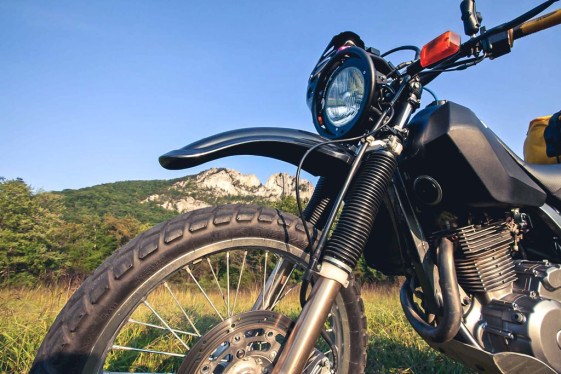
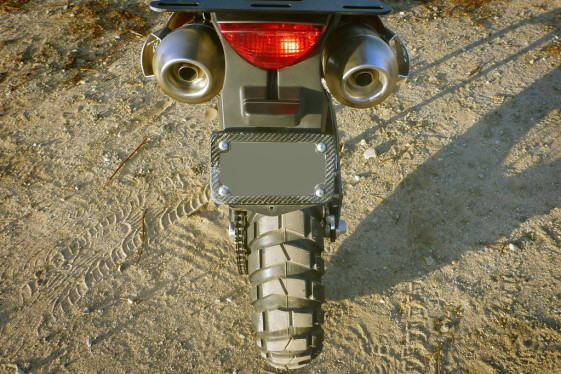
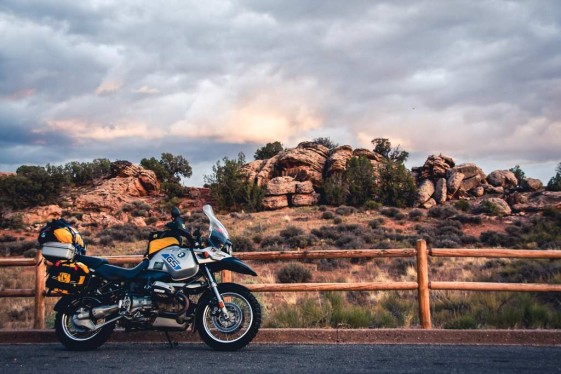



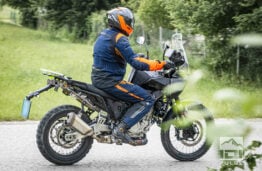
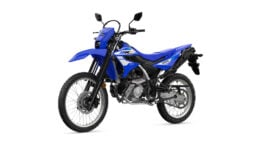

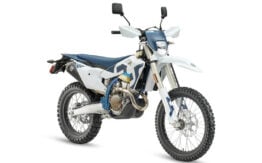


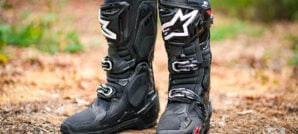
Notify me of new posts via email
I have always thought that it would be fun to get a motorcycle, and was curious about how you would go about buying one. It’s interesting that you should look at the rubber components and bolts to see the wear and tear of the vehicle. I would have never known that something like that can show how the vehicle was treated. http://kurtzkawasaki.com/category/motorcycles/
I like what this article mentions about the tires on a motorcycle. It makes sense that you’d want to check the tires to make sure there is a lot of tread and that they are a good brand. It’s something I’ll have to remember because If I’m going to buy a motorcycle, I want to make sure I stay safe and good tires are essential for that.
I agree that mileage is an important thing to check when you are buying a new motorcycle. It’s important that you have a good idea of how much a bike has been used before you commit to buying it. You should have a good idea of how long you would like your motorcycle to last you depending on your needs. That way you can buy something that will meet your expectations.
This is exactly why I’m afraid to buy a used motorcycle.
Brand new is the only way to go for me.
I thought this was a really helpful article because I never knew what questions to ask when buying a motorcycle. Well I did know to ask what color I wanted. The best question it advised to ask was “How much time did the bike spend outside?”. I say this because when buying new or used it is a very useful question that opens the gate to most of the other questions. Now I feel confident in what kind of bike I want to buy.
I think you make a good point how it is important to use the wheels as a gauge as to the overall quality of a motorcycle. Like you said, it can provide good insight as to what type of care the bike has received in the past. I’ll be sure to utilize this tip in the future when I look for a motorcycle for myself.
If a motorcycle was not cared for, it is fairly difficult for the owner to hide it. It’s important to get to know the model of motorcycle that you searching for. Get to know the details of it. That way, you will be able to see any irregularities that may exist.
I like your tip about how their’s no such thing as a dumb question. Asking why the motorcycle is being sold seems like a great question to ask. My husband is hoping to buy a bike at some point. I think he might feel more comfortable buying a used motorcycle from a trusted dealership. http://www.dallashd.com/used-harley-davidson-motorcycles-for-sale-texas–xPreOwnedInventory#page=xPreOwnedInventory